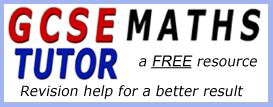Home >> Help Topics - Hints & Tips
If you do nothing else, read this document carefully.
Especially important is advice given at the bottom of the page on the exam itself.
Be prepared!
Have pens and sharpened pencils at the ready. Don't use pens that leak or ones with broad tips. By the same measure, don't use untried new pens. They may let you down. Use a pen that you know is reliable.
Write clearly!
You might be the next Einstein or Dirac but unless you write clearly we will never know! Anything the examiner cannot read he/she cannot mark. If you are a poor writer, please take the time to write neatly.
Read the question!
This is not wasted time. Read the whole question once to get a rough idea what it is about. Then read it again from the beginning - slowly. It is a good idea to tick off each line, including information in diagrams. Do not start until you are sure you thoroughly understand what is asked.
Be accurate!
Again, read the question! If it asks for 2 decimal palaces or 3 significant figures, then that is what it wants. Before going on to the next question, check you answer with the original question.
Simultaneous Equations
The answers to exam questions tend to be nice rounded numbers. If they have a decimal, it is usually ends in .5, but these are rare. Answers with a line of decimals are probably wrong, so check for errors.
Inverse % questions
These are 'backward looking' problems. With current values given in the question, you have to calculate some original value before the decrease/increase occurred. Again, the answers tend to be rounded numbers. If you get a train of decimals, check back in your working.
Probability
Simply check that your answer is between 1 and 0; and of course, there are no negative values.
The Mean
Common sense here! Check that the number is not silly - too high/too low, and that it is between the highest and lowest values, and not outside them.
Rounding
Don't round up calculator display numbers unnecessarily. If you do this, and the calculation has a number of stages, you final answer will be incorrect.
Quadratic Equations
A question asking for significant figures or decimal places indicates you should use the quadratic formula.
Pythagoras
Look at your answer. You should never get a length longer than the hypotenuse.
Trigonometry
Common sense here. Look out for silly answers. Again, lengths should not be longer than the hypotenuse.
Use of Bold Print
This means that the question is not straight forward. Bold print is a cue to read the question again carefully, so you understand exactly what is asked.
Materials
tracing paper - useful for rotating shapes
Your answers
|
Write small.
Show all working.
Use words to describe your calculations/equation changes.
Where space is at a premium, draw a vertical line and work either side of it, rather than sprawl work across a page. |
Do not work late the night before, but do get up early to go through your final revision notes.
Revise right up to the point when you are told to come into the exam room, but please do not bring any revision materials into the exam room itself. Leave them in your bag outside.
Go through the paper quickly reading or scanning it to get an idea of what is asked.
Work your way through the paper. If you find any question particularly formidable, do not carry on with it. Come back to it later. You will lose valuable time being bogged down with one question. Get some easy marks in the bag first.
When you have finished do not sit arms folded looking up at the ceiling! You will not have scored 100%! There are some marks still to be had. Spend every last minute going through the paper carefully looking for errors. Trust me. There will be some!
There only remains for me to say good luck. But exams have little to do with luck. If you have done the work and revised thoroughly, you will undoubtedly do well. The fact that you are reading this shows your intent. So don't look at exams as impossible hurdles to jump. Look at them as opportunities for you to shine and show everyone just what you can do!
Alan J.
[ About ] [ FAQ ] [ Links ] [ Terms & Conditions ] [ Privacy ] [ Site Map ] [ Contact ]
